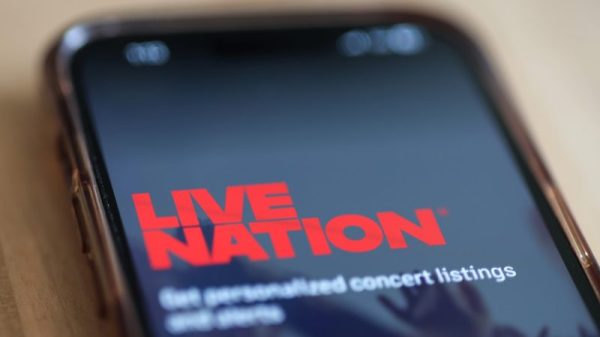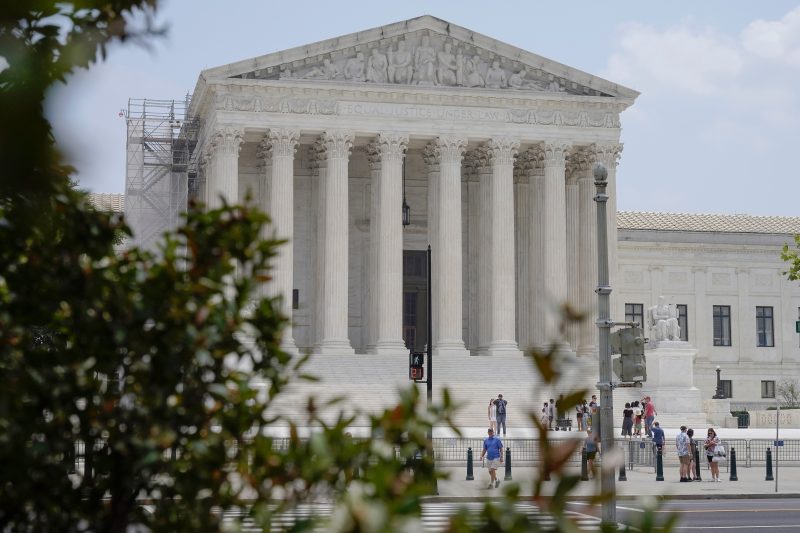LOS ANGELES — On Tuesday, just minutes after the Supreme Court reversed the conviction of a man who’d made relentless online threats to a stranger, ruling that the threats were protected by the First Amendment, Patrick Tomlinson began receiving harassing text messages.
“SCOTUS just ruled that our conversations aren’t harassment as I’ve never threatened you,” read one message Tomlinson shared with The Post. “It’s just two friends enjoying each other’s company.”
Tomlinson was outraged. “It’s beyond irresponsible,” Tomlinson said of the court’s decision. “It’s a catastrophic ruling for victims of online harassment.”
On Wednesday, victims of that harassment and their advocates reacted with dismay at the court’s 7-2 ruling, written by Justice Elena Kagan, that found that while true threats of violence aren’t protected by the First Amendment, other harassing online speech is, unless prosecutors prove a defendant acted recklessly and “disregarded a substantial risk that his communications would be viewed as threatening violence.”
“The majority of the court simply can’t even imagine what stalking is like,” said Mary Anne Franks, a professor of law at the University of Miami, who filed an amicus brief on behalf of the victim in the Supreme Court case. “They have no idea about the terror these victims are living in.”
There is no objective measure of how common online harassment has become. But an indication of the widespread nature of the problem, experts said, is that 25 states filed a friend of the court brief in the case.
That brief urged the court not to overturn the conviction of Billy Raymond Counterman for causing “emotional distress” to Coles Whalen, a singer-songwriter he’d never met but who became the subject of frequent messages Counterman posted on Facebook over two years. A Colorado jury convicted him of stalking and inflicting emotional distress and sentenced him to prison. A Colorado appeals court upheld the conviction; the Supreme Court overturned that ruling.
Meta, Facebook’s parent company, declined to comment on the case. But some experts suggested it could make tech companies less willing to crack down on harassing posts.
“If things are considered less illegal, tech platforms are less culpable,” said Kat Lo, content moderation lead at Meedan, a tech nonprofit focused on digital literacy.
Lauren R. Shapiro, an associate professor at John Jay College of Criminal Justice, said the ruling could itself have free speech implications. She said the targets of online harassment and stalking essentially drop out of society and censor themselves. “This is a democratic society, everybody’s voice should be allowed. If you’re silencing victims, then their voices aren’t part of the democratic conversation,” she said.
The pervasiveness of the online world makes it difficult for people to ignore online attacks, she added. “It’s 24/7 harassment, no one can handle that, no one,” she said. “No matter how confident or smart, there’s no escape. There’s no safe space.”
Danielle Keats Citron, a professor at the University of Virginia School of Law, who has written numerous books on cyberstalking and harassment, said that the decision simply “added difficulty on difficulty” for victims and “has troubling implications.”
Citron said she’d been appalled when she listened to the oral arguments and heard the justices laughing and talking flippantly about online abuse. She called the commentary during oral arguments minimizing harassment “entirely disgusting.”
“The Court just handed stalkers and harassers, including of politicians, journalists, climate scientists, doctors advocating for vaccines, you name it, a new weapon,” said Soraya Chemaly, director of the Women’s Media Center Speech Project, an offshoot of the Women’s Media Center, which was founded in 2005 by the actress Jane Fonda and the feminists Robin Morgan and Gloria Steinem.
Lenora Claire, a TV producer and founding member of the Los Angeles District Attorney Crime Victims Advisory Board, and herself a victim of stalking, said she fears the court’s ruling will make people less willing to confront their harassers.
“This is a crime which is not taken seriously as it is,” she said.
For the past five years, Tomlinson’s life has been turned upside down by a community of aggressive cyberstalkers and trolls. They began tormenting Tomlinson and his wife after Tomlinson posted a tweet in 2018 saying he didn’t find the comedian Norm Macdonald funny. What should have been a benign tweet got sucked up into online forums where far-right extremist trolls congregate. They fixated on Tomlinson, and he became the target of relentless abuse.
Tomlinson, an author, has had the police sent to his home more than 43 times in swatting incidents. He said stalkers have stolen his personal information and impersonated him in an effort to destroy his credit score. They’ve flooded sites with one-star reviews of his books, in some cases before the books were even released. His family members have been harassed with text messages and calls, he said.
Last October, one of Tomlinson’s stalkers flew from Boston to Milwaukee to film Tomlinson through his windows. The stalker then uploaded footage of Tomlinson to YouTube set to the song “Somebody’s Watching Me.” The stalker also visited a bar where Tomlinson sometimes works and live-streamed himself with two dolls, one of which was meant to represent Tomlinson’s wife. YouTube took the videos down.
Tomlinson, like many victims, filed a lawsuit against the owners of a forum he accused of driving harassment toward him, but he lost and now owes tens of thousands of dollars in legal fees.
Tuesday’s Supreme Court decision just added to his sense of defeat, he said.
“It’s brought me to the conclusion that nondigital natives simply do not understand this environment,” he said. “They do not understand the world that’s been created, and the world we all live in. And they should not be making rulings that are going to be setting precedent about how the internet will be regulated and policies for decades.
“It’s not an option to just not exist online,” he said, adding that there really is no meaningful distinction between one’s online presence and real life. “Anybody who still thinks that distinction exists is … divorced from the experiences of hundreds of millions of people.”



























